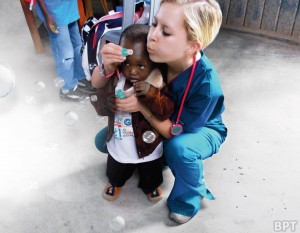Nurses respond to growing diversity in health care
 (BPT) – Since 2010, legislation outlined in the Affordable Care Act has and will continue to guide the U.S. health care system through a series of changes that will allow it to adapt to innovation, technological advances and the needs of millions of new patients. The industry is rapidly evolving to respond to unprecedented challenges, including the rising demand for patient care.
(BPT) – Since 2010, legislation outlined in the Affordable Care Act has and will continue to guide the U.S. health care system through a series of changes that will allow it to adapt to innovation, technological advances and the needs of millions of new patients. The industry is rapidly evolving to respond to unprecedented challenges, including the rising demand for patient care.
Industry-leading organizations, including the American Nurses Association (ANA), are taking proactive steps to prepare for this shift. In a letter to ANA members and colleagues, ANA President Karen A. Daley says the organization will “advocate for a system that focuses on wellness, early intervention, chronic disease management and care coordination.”
In the United States, 20 million people receive health care services through community health centers, and new legislation has designated funds to expand their capacity. As more Americans obtain access to health insurance coverage and the patient population diversifies, health care professionals who work in community health centers and more traditional settings, such as hospitals, will require extensive knowledge in community and multicultural care.
Comprising the largest segment of the health care workforce, registered nurses are well positioned to meet these industry needs. In fact, in the 2010 report, The Future of Nursing: Leading Change, Advancing Health, the Institute of Medicine recommended that nurses gain the competencies needed to provide care for diverse populations.
Chamberlain College of Nursing students in the Bachelor of Science in Nursing degree program acquire this education through a required multiculturalism and community health course. For those who desire to experience multicultural nursing firsthand in communities abroad, Chamberlain also offers International Nursing Service Project trips that can be completed as an alternative to the traditional required coursework. These trips are two- to three-week immersion experiences that help the students gain a deeper understanding of cultural and economic differences across the globe.
Dr. Susan Fletcher, a professor of international studies at Chamberlain, has led international trips since 1993 to Bolivia, Brazil, Kenya, the Philippines and Uganda. While abroad, Dr. Fletcher and the Chamberlain nursing students provide health care services to thousands of low-income residents, some of whom have had no prior medical care.
“The immersion learning experience is eye opening for many students; they return with a much deeper understanding of cultural and economic differences,” Dr. Fletcher explains. “Nurses are leading the transformation of health care, so it is vital that they prepare to work in diverse settings and provide care for patients of all ethnicities and walks of life.”